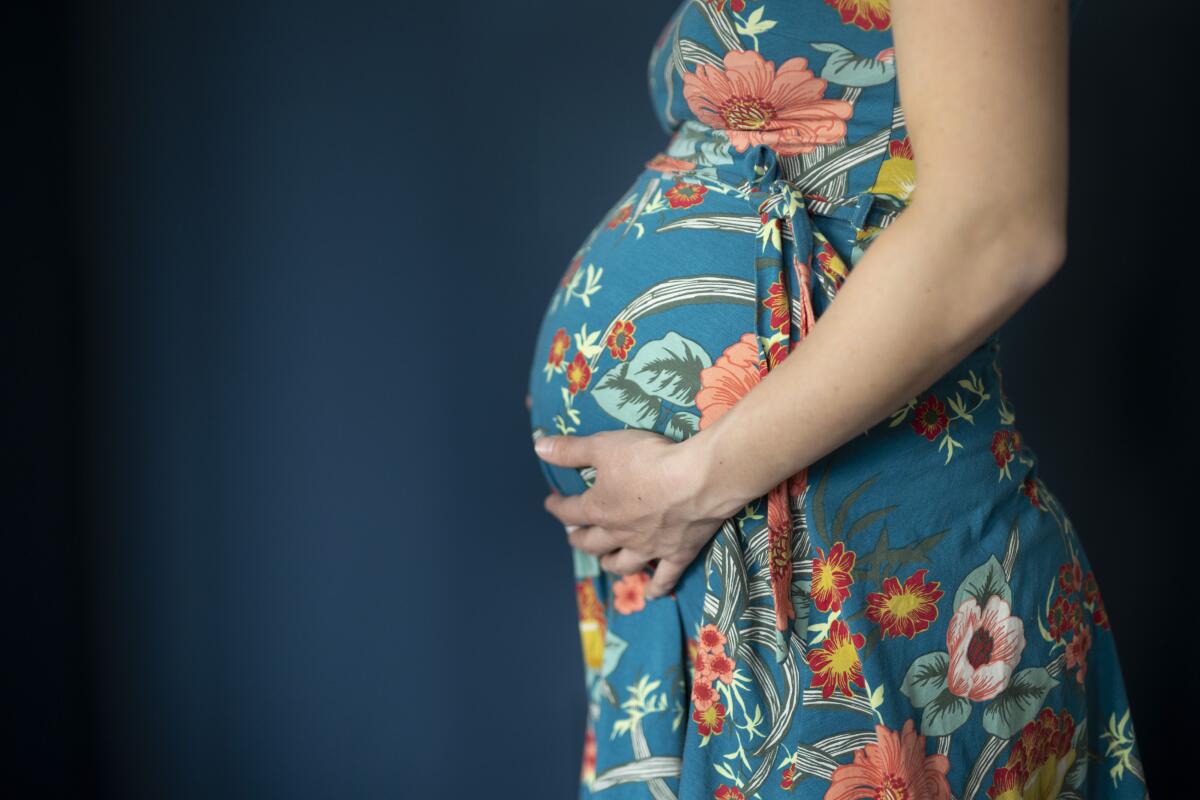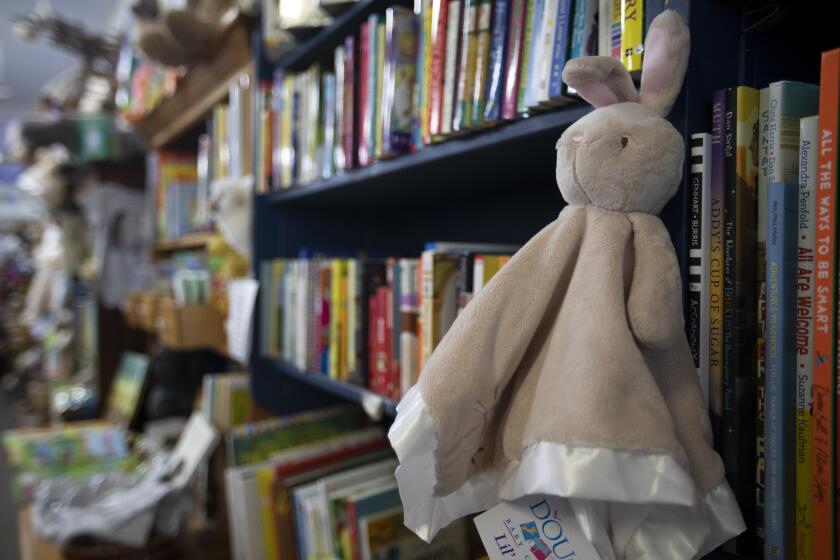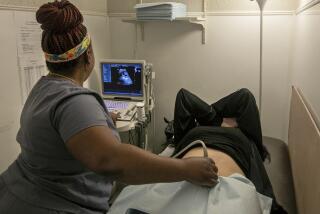The list of foods banned during pregnancy is absurd. Humans are horrible at assessing risk

- Share via
My daughter Zoey is pregnant. I had her over for brunch. I served fresh-squeezed OJ. And her favorite, lox and bagels with cream cheese.
Stop me, if you’ve heard this one, but she politely told me that the lox was verboten, as was the fresh-squeezed OJ — risk of listeria. Cream cheese was OK as long as it was pasteurized.
“Your grandmother had lox and bagels every Sunday while she was pregnant with me. Of course, she also smoked, as did her doctor,” I said, just to be annoying.
The lists of banned foods for pregnant women is absurd, without a doubt designed by malpractice attorneys making sure no risk, however small, goes unstipulated. No OB has ever been sued for recommending a woman with child follow strict dietary guidelines that forbid almost every soft cheese worth eating, including feta, blue and brie (listeria risk); deli meats, a category I assume contains every species of corned and smoked brisket (more listeria risk); and organic health food store staples such as fresh-squeezed juice and raw alfalfa sprouts (bacteria risk).
And yet riding in a car doesn’t make any list of pregnancy dangers.
The risk of being in a car accident during the nine months of your pregnancy: 1 in 50, based on widely quoted statistics. The risk of harming your fetus by eating a wedge of brie: so small it’s not available on the internet.
Human beings are terrible at assessing risk. We read about a plane crash and decide to drive instead of fly, thereby increasing our risk of death astronomically. The risk of dying in a commercial plane crash: 1 in 29 million.
In the months after 9/11, nearly 1,600 people died from choosing to drive rather than fly, according to calculations by a German academic specializing in risk. That’s the power of what behavioral psychology calls the “availability heuristic,” the tendency people have to make decisions based on information that comes to mind quickly, usually horrific but extremely rare events.
Toss out the toys, lay off the praise: A new book on parenting looks to ancient cultures for child-rearing tips.
So if you are pregnant and you read a story about a child born with a rare defect and then your doctor tells you about a prenatal test that can rule out several conditions such as Prader-Willi syndrome, which occurs in 1 in 20,000 births, you are likely to say yes.
Of course, the risk of falling on your way to the car to drive to the test is much higher than the risk your baby has Prader-Willi syndrome, a genetic disorder that causes extreme obesity in children. (Slip and fall accidents account for 8 million emergency room visits a year).
A recent New York Times report raises lots of disturbing questions about the overuse of prenatal blood testing for rare conditions, a phenomenon that is becoming much more common. One company performed 400,000 screenings for one rare condition in 2020 — that’s about 10% of all pregnant women, according to the article. Investigators also found that 85% of positive test results were wrong, leading to more invasive (and riskier) follow-up tests. And yet a 2014 study reported that 6% of patients whose test was positive obtained an abortion without seeking a follow-up test.
Mary Norton, an obstetrician and geneticist at UC San Francisco, was quoted as making this comparison: “It’s a little like running mammograms on kids. The chance of breast cancer is so low, so why are you doing it?”
I want my niece to love reading as much as I do. She doesn’t. Arguments ensue. The experts’ advice? Chill out — kids read differently these days.
Why? Because humans crave certainty. But if certainty is what you’re after, you might want to reconsider going into the parenting business. It’s filled with risks. And terror. And not coincidentally, joy.
So even if you deliver a healthy child — with all 46 chromosomes intact — that child still faces serious odds there are no tests for, such as broken bones (about 1 in 2 kids will break a bone in childhood). Or an anxiety disorder, which affects 1 in 8 children. And don’t forget about falling — every one of us has a 1 in 100 lifetime chance of falling to our deaths.
So I suggested to my daughter that she say no to all this prenatal testing. She said the chance of that was about 1 in 10.
Jim Sollisch is a creative director and partner at Marcus Thomas Advertising in Cleveland.
More to Read
A cure for the common opinion
Get thought-provoking perspectives with our weekly newsletter.
You may occasionally receive promotional content from the Los Angeles Times.










